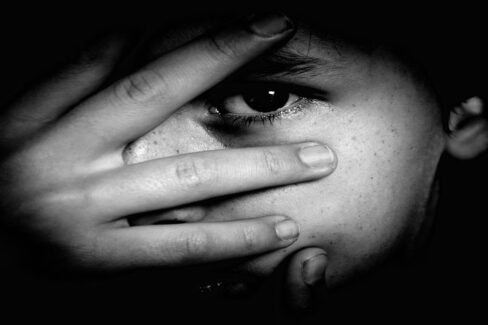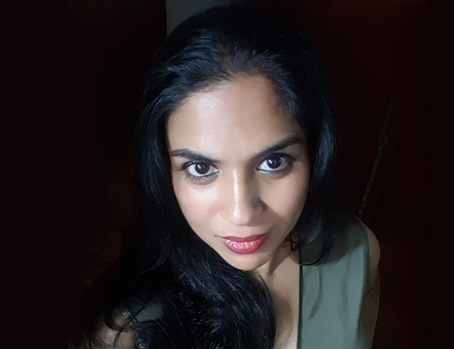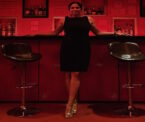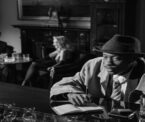The Past Gets In My Eyes*
Lila asked me to comment on the subject of how our pasts affect us and when it used to come up in therapy sessions with clients the question posed was “the past is past, how can it still affect the present?”
John Locke believed that the mind was bereft of innate ideas and that the idea of self was generated by the experiences we are subject to. I however believe though our experiences do fashion us, each child also has a personality of its own that has an input into who we become and how we act. The fundamental principle is that though our pasts do affect how we handle current situations, it is not set in stone and by working through it with a professional we can ameliorate or eradicate its affect. Therapy can never erase what happened, but it can heal the deep emotional wounds of the past, so that they no longer have an effect – like a scar, it marks the site of the wound, but it no longer hurts.
Recently, the Duke of Sussex wrote a book on how he felt he had been treated by the Royal Family. I am not going to dwell on the rights and wrongs of the instances he quotes, but it is the Truth as perceived by him and a lot of it is coloured by experiences of loss and hurt in his past. I also found among my clients, that when they were prevented from discussing or airing what they feel, the resentment builds up and explodes in ways that lead to further detriment.
So how does the past affect our current state? There are many ways a child can interpret a situation they find themselves in and this then becomes the core of their emotional hurt.
One factor is when there is a sibling or parent who is ill. All the attention is then focused on the sick person and the child who is well feels that his or her needs don’t matter. “You can’t visit the zoo as promised because your sister is too ill to go. Don’t be so selfish!” Constantly, the needs of the child who is well is being pushed aside. It is even worse when it a parent who suffers from an illness like depression. Whatever you do, you cannot make your mummy happy, she is always sad. So the child learns to put others first and becomes the “useful” one – the notion being if I am not loved for being me, at least they will need me and so want me around. How many of these self-sacrificing children do we see around us? People who put their own needs last? Who care for others but not for themselves?
The above can also lead to children who rebel and become “naughty” as a means of attracting the parents’ attention. It often leads to being shouted at but negative attention to a child is better than no attention at all. As adults, they continue to draw attention to themselves in ways that are inappropriate.
Some children because it feels so painful to be ignored, learn to cut off from their feelings. They grow up being insensitive to others or often not committing in relationships as there is an unconscious ingrained fear that they are not lovable.
Parents sometimes demand perfection from their children and in many Eastern cultures they map out their children’s lives for them. If the child deviates from this path, they are made to feel guilty or ashamed or compared to others, often a sibling who is perceived as better behaved. Sometimes this can damage the bonds between the siblings and create a lifetime of jealousy and resentment. Often children with perfectionist parents give up and never achieve their potential as deep down they feel they will never be good enough.
Furthermore, if a parent dies the child feels abandoned. Since we only abandon things we no longer want, the child feels unwanted and unloved. Furthermore, the dead parent is placed on a pedestal and the child tries to live their life in a manner which would have been approved of by the dead parent even if it is not the life they want for themselves. They are also unable to deal with any criticism levelled against the dead parent. So the control continues from beyond the grave.
Often children are also keepers of family secrets like alcoholism, drug abuse or domestic violence. They live in homes that are unpredictable and volatile and so grow up wanting to control everything in their adult lives.
Children who suffer abuse keep silent for fear of not being believed or in the case of incest, breaking up the family. They also often blame themselves which is even worse if they derive any pleasure from the act and carry guilt at betraying the other parent, who in this situation is probably the adult who can help. Love and abuse become inseparable in their minds which leads to difficult adult relationships. It also leads to depression, drug or alcohol abuse and sometimes is linked to weight gain. The latter in the case of women is aimed at keeping men from finding them sexually attractive and the bigger body mass psychologically means that they are no longer children and therefore no longer vulnerable.
Sadly, if you don’t deal with your past, you damage others in your adult relationships and pass the damage in some form onto your children and so it continues down the generations.
The past does not have to define us. Our minds can with professional help evolve. It is learning that you are as important as your sick sibling, though they might have needed more help than you, that it is not your job to be responsible for your parents and that you can stop pretending that everything is perfect. It takes time but it is possible and necessary to shrug off the emotional baggage of the past and move forwards unfettered and free of it so that the smoke of the past no longer blurs the vision of your emotional landscape.
*This article was written by ‘The Common Sense Therapist’, a retired psychologist who lives overseas and wishes to remain anonymous. She has many decades of experience in dealing with various people and aspects of psychology, and is a great source of enlightenment on many things in life.









